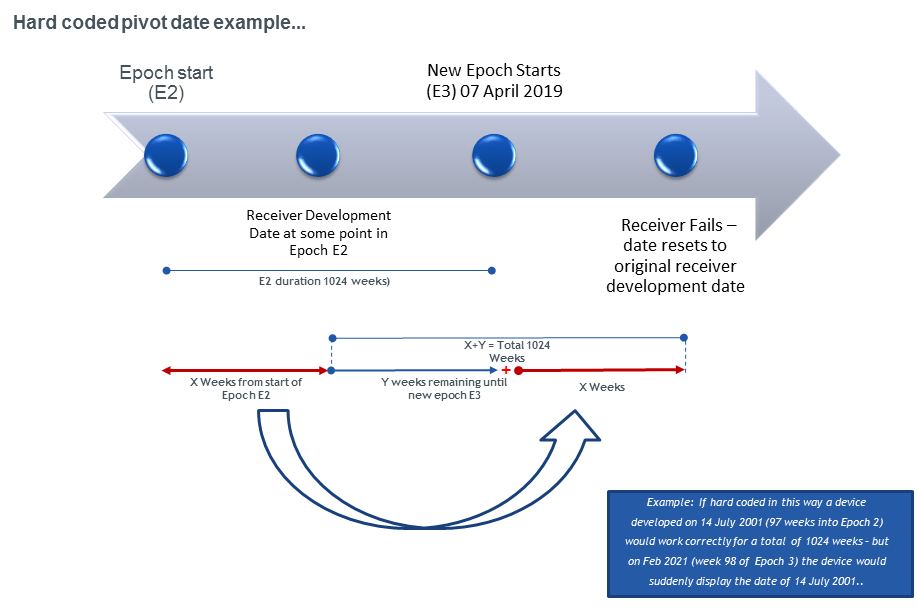NATIONAL CRITICAL INFORMATION INFRASTRUCTURE PROTECTION CENTRE (NCIIPC)
A Unit of National Technical Research Organisation
NATIONAL CRITICAL INFORMATION INFRASTRUCTURE PROTECTION CENTRE (NCIIPC)
A Unit of National Technical Research Organisation
Critical Infrastructure (CI) owners, operators and other users who obtain Coordinated Universal Time (UTC) from Global Positioning System (GPS) devices should be aware
of the GPS Week Number (WN) rollover events and the possible effect a GPS WN rollover event may have on the reliability of the reported UTC. The Week Rollover Problem
is a known issue caused by the way GPS handles the week element of the data that forms an essential part of the navigation signal. GPS uses a 10-bit field to encode
the week number in each GPS time message, which means that a maximum of 1,024 weeks (19.7 years), can be handled. Each of these periods is known in GPS terms as an “epoch”.
At the end of each epoch of 1,024 weeks, the receiver resets the week number to zero and starts counting again. The first GPS satellite went live on 6th January 1980, meaning
that the first epoch of GPS time lasted until 21st August 1999 and the end of the second epoch, falls on the 6th April 2019. Beside this, many receiver manufacturers have sought
to maximize the default lifespan of their receivers by implementing the 1,024-week limit from the date firmware was compiled, rather than from the date the current GPS epoch began.
In effect this means that older GPS receivers will operate normally for almost 20 years before problems begin to occur and if firmware is implemented in this manner, no issue is
likely to be seen when the GPS epoch changes. For example, while the second GPS epoch began on 26th August 1999, a receiver manufactured in January 2005 may have a “pivot date”
of January 2005 + 1,024 weeks coded into its firmware meaning it will function smoothly until August 2025.
